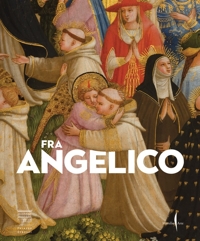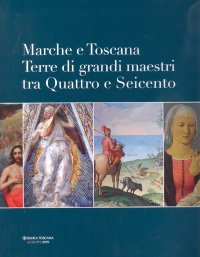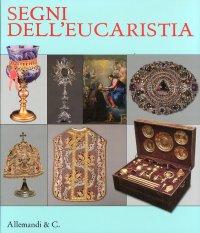Beato Angelico
Firenze, Palazzo Strozzi, 26 settembre 2025 - 25 gennaio 2026.
A cura di Carl Brandon Strehlke.
Testi di Stefano Casciu, Marco Mozzo, Angelo Tartuferi.
Venezia, 2025; ril., pp. 456, 300 ill. col., cm 24x29.
prezzo di copertina: € 80.00
|
Libri compresi nell'offerta:
Beato Angelico
Firenze, Palazzo Strozzi, 26 settembre 2025 - 25 gennaio 2026.
A cura di Carl Brandon Strehlke.
Testi di Stefano Casciu, Marco Mozzo, Angelo Tartuferi.
Venezia, 2025; ril., pp. 456, 300 ill. col., cm 24x29.
OMAGGIO (prezzo di copertina: € 80.00)
Marche e Toscana. Terre di grandi maestri tra Quattro e Seicento
Ospedaletto, 2007; ril., pp. 320, ill. col., tavv. col., cm 25,5x29.
OMAGGIO (prezzo di copertina: € 77.00)
Segni dell'Eucarestia
A cura di M. Luisa Polichetti.
Ancona, Osimo, Loreto Jesi, Senigallia, Fabriano e Metelica, 23 giugno - 31 ottobre 2011.
Torino, 2011; br., pp. 221, ill. b/n e col., cm 24x28.
OMAGGIO (prezzo di copertina: € 32.00)
Torquato Tasso's Jerusalem Delivered from Carracci to Tiepolo. The Making of the Affetti
Giovanni Careri
Harvey Miller Publishers
Testo Inglese.
London, 2021; br., pp. 280, 11 ill. b/n, 52 ill. col., cm 22x28.
(Studies in Baroque Art. 14).
collana: Studies in Baroque Art
ISBN: 1-912554-10-0 - EAN13: 9781912554102
Soggetto: Pittura
Periodo: 1400-1800 (XV-XVIII) Rinascimento
Testo in: 
Peso: 1.38 kg
Armida reaches out to Rinaldo armed with a long knife. She hates him, she wants to kill him. Cupid restrains her arm, but the left hand of the sorceress already lies on that of the sleeping hero, a touch that leads her to fall in love. The blue and the red divide the scene. Two contrary passions - narrated by Torquato Tasso, depicted by Nicolas Poussin - are depicted across the canvas. The liberated Jerusalem is the privileged locus of the affetti, to which painting, music, dance and theater have been drawn throughout Europe starting from the sixteenth century. Going further than the narrated action, the painters have diverted the attention to the complex dynamics of passion that Tasso's masterpiece conveys in literary images, and have captured the devices for configuring this new profane affection as opposed to the affectum devotionis of the sacred texts.
This volume investigates the exchange between the poetic word and the most stimulating works that have interacted with it. Condensed within visual formulas, a variety of themes emerge such as the blurring of the lines between male and female identity, between love and war; the confrontations and exchanges between different cultures, through violence, religious conversion and the assimilation of one another; the modern hero divided between the worldly, affective arena of the court and the locus amoenus protected from passions. Ultimately, the study examines the astounding political implications of art in relation to court rituals and to all those practices through which power is built and strengthened. Examining the images that permeate poetry and the poetic devices that have found their way into painting, Giovanni Careri traces a trajectory to the fundamental moment of reconfiguration of the visual history of passions. Through the paintings of great artists such as Poussin, Tintoretto, Guercino, Tiepolo and dei Carracci, the author explores the affective revolution at the base of the contemporary world.
Directeur du CEHTA, Giovanni Careri est Directeur d'études à l'EHESS, membre associé au Laboratoire d'anthropologie sociale (EHESS, CNRS, Collège de France) et Professeur à l'Ecole des beaux-arts de Lyon. Il est responsable avec Bernhard Rüdiger du groupe de recherche " Art contemporain et temps de l'histoire " (CEHTA-EHESS / Ecole des beaux-arts de Lyon).

Baia grande. La pialassa Baiona ultima frontiera per una valle salmastra
Tommaso d'Avalos. Un intellettuale a Napoli nel primo Seicento










